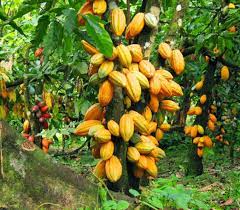Civil Society Organisations are being equipped with land governance monitoring skills for sustainable land use in Ghana.
The training jointly undertaken by Solidaridad and Trust Africa seeks to contribute to a sustainable and inclusive global cocoa, oil palm and gold value chains.
It is meant to ensure producers receive a fair value for their produce and work under safe conditions without the use of child labour and land rights and forests are protected.
The customary land tenure arrangement is a common landholding system in most rural areas in Ghana.
Customary lands are managed and allocated by traditional or customary leaders such as chiefs, clan heads or family heads.
The arrangement is characterized by oral agreements between the landowner and the prospective tenant farmer, with little consideration for documentation.
The lack of a written agreement as proof of ownership usually weakens the rights of farmers to lay claim to their farmlands when conflicts arise.
The reclaim sustainability programme is a four-year Dutch government-funded project implemented by Solidaridad in Ghana.
It is been implemented by Solidaridad West Africa and Trust Africa in Ghana, Cote d’Ivoire and Sierra Leone with funding from the Dutch Ministry of Foreign Affairs.
Coordinator for the RECLAIM Sustainability! programme at Solidaridad, Seth Kankam believes the programme will empower farmers to take full control of their lives.
“Over the years we’ve realized farmers don’t have a say in the policies that affect their livelihoods.
“Solidaridad and Trust Africa, therefore, put together the way we could manage and empower farmers and CSOs for their voices to be heard in their livelihood activities,” he said.
Programme Lead for the RECLAIM Sustainability! programme at Trust Africa, Bethule Nyamambi is optimistic the initiative will help in the promotion of Ghana’s land Act.
“This will help us to look at the provisions of the Land Act and what is really happening on the ground and to look at how we can then compile the information that is necessary to provide to policymakers,” she said.
One of the participants, Leticia Yankey of Cocoa Mma, a cocoa farmer-based organisation at Dunkwa-on-Offin is expecting the programme to address issues of gender inequality in the sector.
“After this training, I’m expecting to gain much insight into land governance and how women can bridge the gap in the cocoa value chain,” she said.
Latest Stories
-
Somé chiefs decry exclusion in government engagements
1 minute -
Trump approves Iran attack plan but has not made final decision, reports say
4 minutes -
Community Digital Fair inspires a new generation of digital thinkers in Ningo-Prampram
1 hour -
Today’s Front pages: Thursday, June 19, 2025
2 hours -
We’re monitoring all aspirants in the race – Justin Kodua declares
2 hours -
We’re addressing our internal issues – Justin Kodua
2 hours -
Works and Housing Minister inaugurates State Housing Company Board, two others
2 hours -
Opoku-Agyemang engages NDC leadership
2 hours -
Justin Kodua attributes NPP’s 2024 loss to global wave against incumbents
2 hours -
NPP presidential primaries not skewed to favour any candidate – Justin Kodua
3 hours -
Parliament takes major step towards strengthening economic governance
3 hours -
IFC urges banks to increase lending for sustainable buildings
3 hours -
‘Be measured in commenting on… issues,’ Supreme Court nominee urges chiefs on bench
3 hours -
Governor Asiama urges banks to develop customer-centric products
3 hours -
Samini reveals Mahama and judiciary actions make him a happy Ghanaian
3 hours

